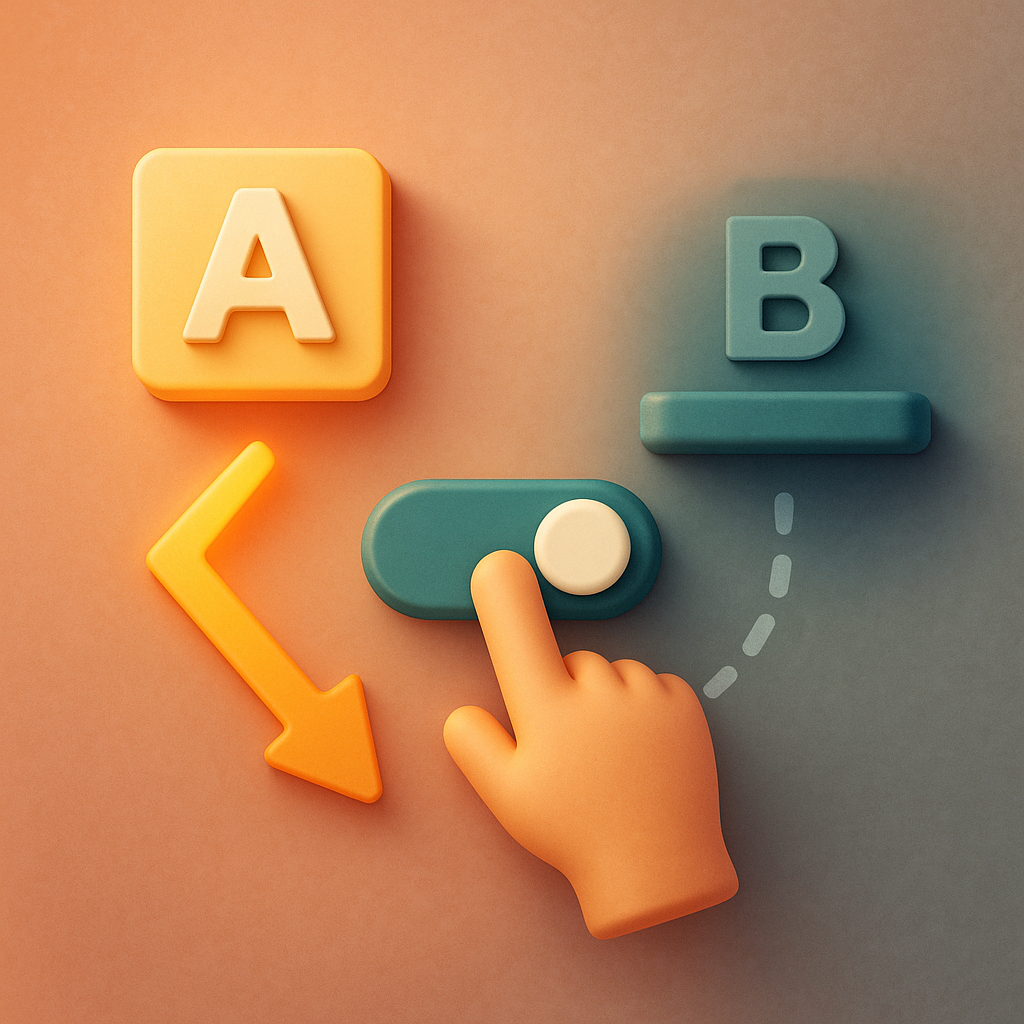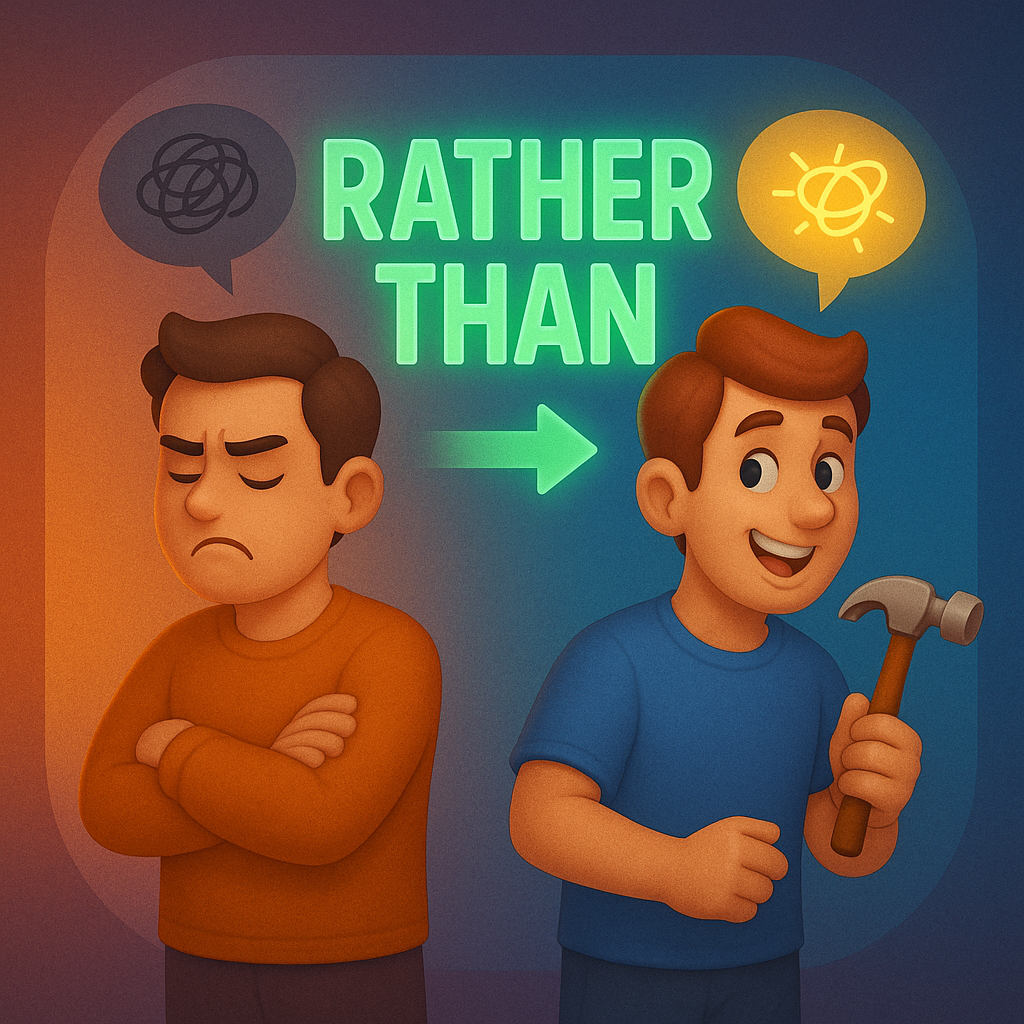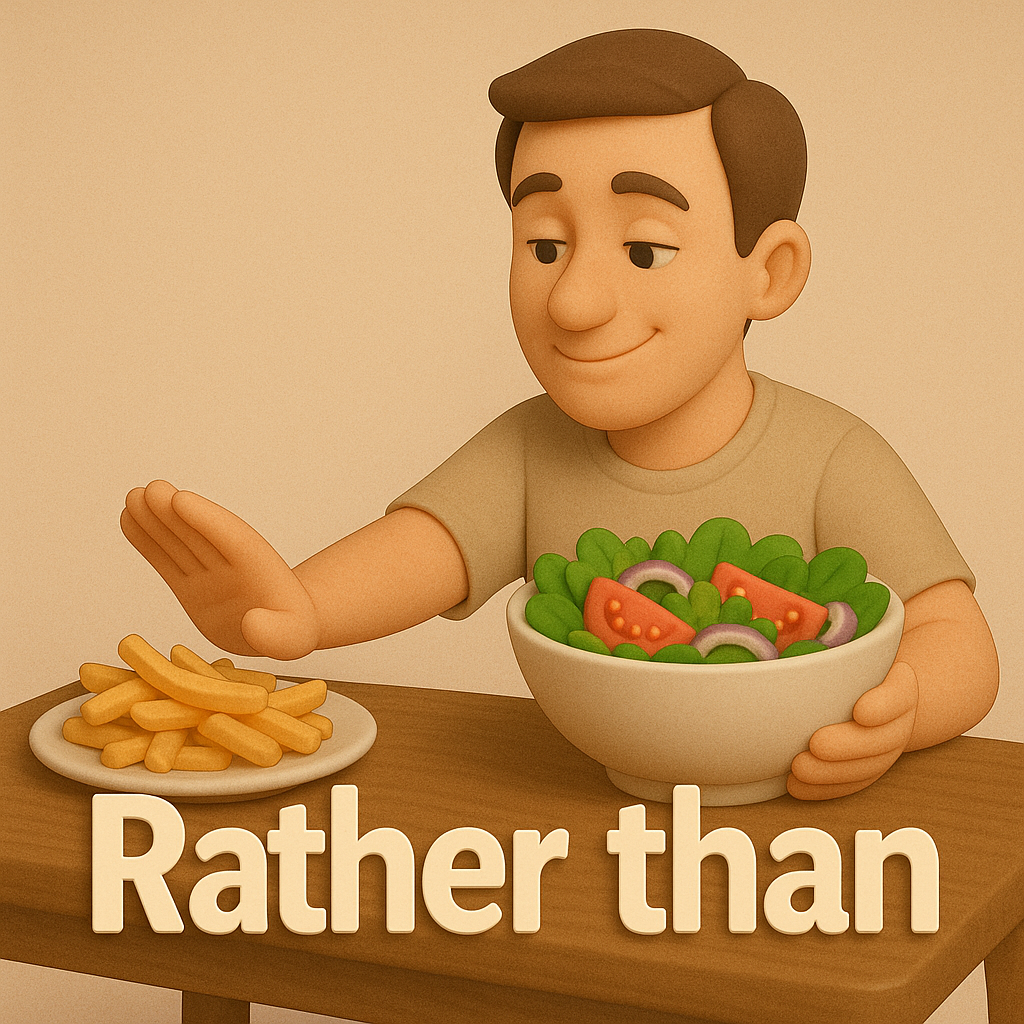Rather than
Definition
Rather than is a conjunction or preposition used to indicate preference for one thing in place of another; it introduces an alternative or contrast.
Parts of Speech
- Conjunction
- Preposition
Pronunciation
American English
- IPA: /ˈræðər ðæn/
- Respelling: RADH-er than
British English
- IPA: /ˈrɑːðə ðæn/
- Respelling: RA-thuh than
Etymology
Late Middle English: from rather (Old English ræðor, comparative of rǣd “quickly, soon”) + than (Old English þan, comparative particle).
Derivatives
- none (fixed phrase)
Synonyms
- instead of
- in preference to
- as opposed to
- in lieu of
Antonyms
- as well as
- along with
- together with
Usage
The phrase "rather than" is used to express a preference or contrast between two actions or items. For example, "She chose to walk rather than take the bus," or "I’d prefer tea rather than coffee."
Related Terms
- Instead: As an alternative or substitute.
- Prefer: To like one thing more than another.
- Alternatively: Used to introduce another option.
- Contrast: A comparison showing differences.
- Comparison: The act of evaluating two or more items.
Detailed Definitions
Conjunction
- Used to introduce an alternative action or situation – connects two clauses, indicating preference for the first.
- Example: "Rather than complain, he offered to help fix the problem."
- Used to express contrast – presents a contrasting choice between two actions.
- Example: "She decided to study all night rather than risk failing the exam."
Preposition
- Used before a noun or noun phrase to show preference – indicates one thing is chosen over another.
- Example: "He ordered salad rather than fries."
- Used to indicate substitution – denotes that one item replaces another.
- Example: "Use water rather than oil in this recipe."
rather than








